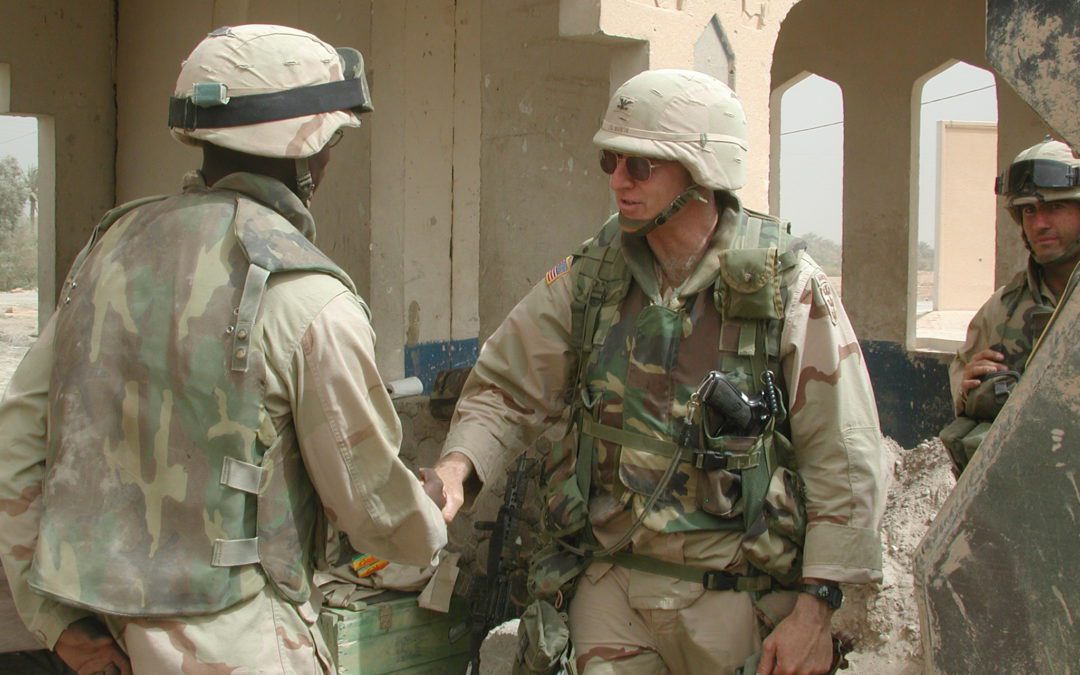Author: Major General Gregg F. Martin, US Army Retired
The Army
I joined the US Army in 1975, at age 18. My motivation for entering the US Military Academy at West Point was first and foremost, to obtain a top-notch education on a full scholarship. Once there, I became hooked on the Army culture, challenge and spirit. I enthusiastically accepted my five-year active duty service obligation.
During my first six years, I led combat engineers, first as a platoon leader (40 soldiers) and then company commander (180 soldiers), in West Germany during the Cold War. This experience pulled me into what would be a 36-year active duty Army career.
I fell in love with the soldiers, leading them, and the satisfaction of doing hard, dangerous, important things. I became addicted to the excitement, challenge, and mission.
The Army has a powerful system for recognizing, rewarding, and keeping talented officers on the team, and over the course of the next few decades, I was incentivized to stay on the Army team with civilian graduate school, great assignments, further military education, and more.
My career was extremely successful, being selected to command a battalion of 500 soldiers as a lieutenant colonel at age 41, a brigade in combat of many thousands of troops as a colonel at 46, then promotion to brigadier general (1-star) at 49, and later major general (2-star) at 52.
Being A General Officer
To give perspective, of an officer cohort that enters the Army in a given year, less than one percent are promoted to general officer; and out of a cohort of colonels (the highest rank before general), less than ten percent are promoted to brigadier general. So, making general is rare and selective – there are fewer than 400 serving in the Army at a given time, out of an active force of around 500K soldiers.
Being a general is a tremendous honor and privilege, that comes with great responsibility to serve our soldiers, our elected and politically appointed government officials, and the American people.
While soldiers are the primary workers in the military, sergeants are the blue-collar foremen, and officers are the white collar supervisors, generals develop the strategies, policies and resourcing to organize, orchestrate and move the entire complex system, to ensure the Army is ready to deploy, fight and win – anywhere in the world.
Generals engage upwardly with elected and politically appointed officials at the highest levels of government; laterally with other services, agencies, allied armies, industry, academia, and others; and downward with their own forces.
Serving as a general entails a tremendous amount of hard, complex, important work. Our soldiers and their loved ones, the nation and our allies, and the American people all trust and depend on us to do the job we’ve been entrusted to do. Intellect, leadership, problem solving, and communication skills are the coin of the realm.
This is all extremely rewarding, and requires the serving general to be in tip-top shape – mind, body, spirit and emotionally.
Bipolar
Unknowingly, I served with active bipolar disorder from 2003, when it was triggered in the Iraq War, until it became acute, and I was diagnosed in 2014. After years of mostly mania from 2003 to 2014, I crashed into a state of hopeless depression and terrifying psychosis.
From 2014 through 2016, I was in a battle for my life.
During my years as a general officer, my bipolar disorder gave me many advantages, until it turned against me. For most of those years I benefited from a high-performing mania that gave me an over-abundance of energy, drive, enthusiasm, creativity and extroversion, all of which helped me as a general. And even during the non-crippling depressive episodes, I benefited from greater reflection, compassion, and humility. All of these mostly advantaged me, until 2014, when I went into full-blown mania, which caused my removal from command. At that point, I could no longer serve as a general officer, and with the depression and psychosis that followed, I could barely function as a human being. Soon I was in a fight for my life.
Thanks to my own desire to get better, my wife and family, a great friend, God’s grace, the VA and Lithium, I recovered and have recreated my life. I’m living a fantastic new life now in Florida, where my wife and I are the happiest and healthiest we’ve been in years. I haven’t had a bad day, since I started taking lithium more than five years ago.
My Story
I decided to tell my story because I want to share my experiences and lessons learned with others – who may have bipolar disorder or another form of mental health challenge, or a family member, friend, or work colleague who is afflicted or affected.
My goal is to give hope and practical knowledge to people who are suffering from mental illness, to inspire them to get diagnosed and treated, to recover, and to create a new life. I want to help others who may be going through what my family and I went through. And I want to help abolish the stigma and discrimination that still exists against those fighting mental illness – a bigotry that is based largely on ignorance.
That’s why I’ve come forward to tell my story.


